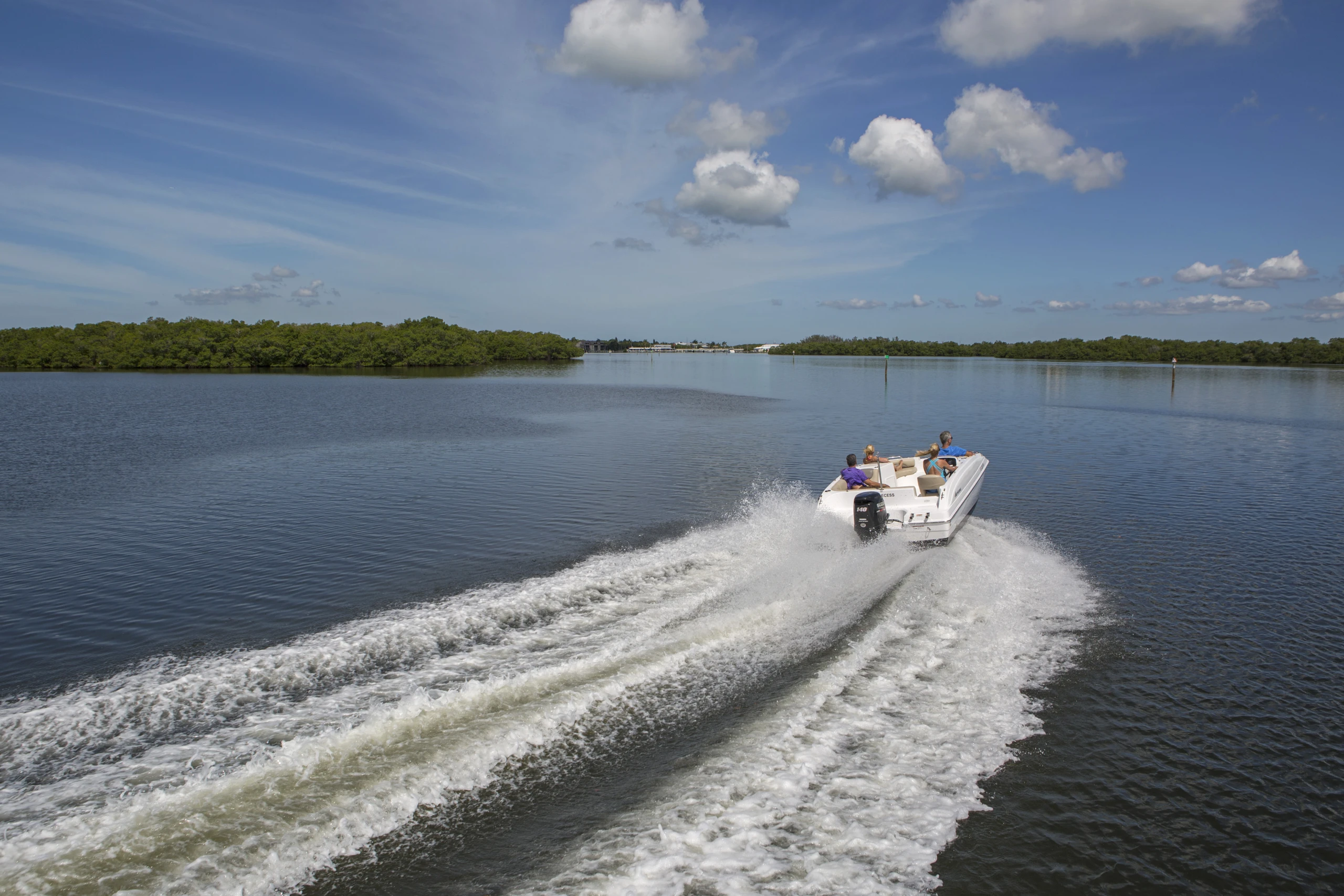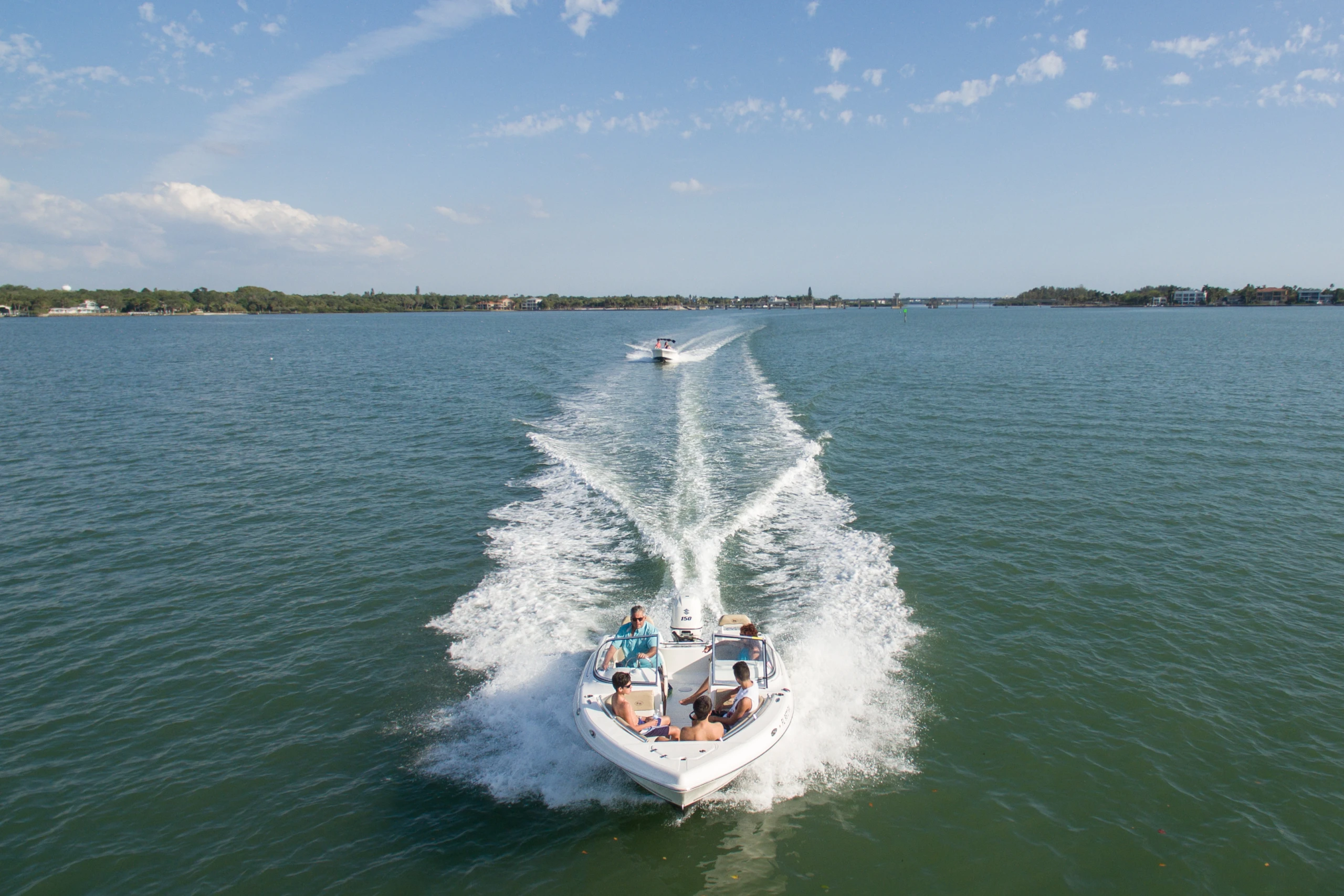
Why should a vessel operator keep a proper lookout? Boating Test Prep Guide and Answers.
Welcome to our comprehensive guide on why vessel operators should keep a proper lookout! Whether you’re preparing for a boating license or boat certification test, or seeking valuable insights as an experienced boater, you’ve come to the right place. At Wavve Boating, we specialize in providing the best and most up-to-date boating test content, ensuring that you have the knowledge and confidence to ace your exams. In this article, we’ll dive into the importance of maintaining a proper lookout while operating a vessel, answering key questions and providing essential tips for both novice and seasoned boaters alike. Let’s get started!
Table of Contents
Why should a vessel operator keep a proper lookout?
A vessel operator should keep a proper lookout to ensure the safety of everyone on board and to prevent collisions with other vessels, obstacles, or hazards in the water. Maintaining a vigilant watch is one of the major boating responsibilities that allows operators to anticipate and respond to changing conditions, navigate safely through crowded waterways, and avoid potential accidents. Additionally, it is a legal requirement for vessel operators to maintain a proper lookout as outlined by maritime regulations and guidelines. By staying alert and attentive, operators can mitigate risks and ensure a smooth and enjoyable boating experience for all. If you’re being asked why should a vessel operator keep a proper lookout, the answer is simple…it’s safety.
What is every vessel operator required to do?
Every vessel operator is required to fulfill three major responsibilities. All of which help prevent collisions and contribute to the safety of everyone on board and in the surrounding waterways. Firstly, practicing good seamanship is crucial to avoiding collisions, and keeping a sharp lookout allows operators to take necessary actions well in advance. Additionally, maintaining a vigilant watch helps to identify potential hazards, other vessels, and navigational obstacles, reducing the risk of accidents. Failing to keep a proper lookout is a common cause of collisions, making it imperative for operators to use both sight and hearing at all times. Finally, maintaining a safe speed is essential for ensuring that operators can react appropriately to any situation, whether it’s avoiding collisions or stopping within a safe distance. What is every vessel operator required to do? Overall, keep a proper lookout as a fundamental responsibility that helps prevent accidents and promotes safe boating practices for everyone involved.
Are you looking to answer the What is every vessel operator required to do question for a boat exam? Check out this study guide, courtesy of Boat-Ed for more details.

In these next sections, we will review all of the other scenarios and questions that you should be aware of before taking your boating test.
Which operators are required to maintain a proper lookout?
EVERY operator is required to maintain a proper lookout, regardless of the size or shape of the vessel. It’s the major boating responsibility of anyone driving a boat. This duty involves actively scanning the surroundings for other vessels, navigational hazards, changing weather conditions, and any other factors that could affect safe navigation. By staying vigilant and attentive, operators can anticipate potential risks and take timely action to avoid collisions or other accidents on the water. Proper lookout also involves using both sight and hearing to gather information about the surroundings, ensuring a comprehensive understanding of the maritime environment. If you’re asking which operators are required to maintain a proper lookout, the answer is all operators. No one is excluded from the responsibility of safety.
How does a vessel operator keep a proper lookout?
A vessel operator keeps a proper lookout by actively scanning the surrounding waters for any potential hazards or obstacles that could pose a risk to navigation. This major boating responsibility involves using both sight and hearing to detect other vessels, navigational aids, changes in weather conditions, and any other factors that could affect safe operation. Additionally, maintaining situational awareness through regular observation of radar, GPS, and other navigational equipment can enhance the effectiveness of the lookout. How does a vessel operator keep a proper lookout and know where to go while driving a boat? Easy! They use Wavve Boating, the top-rated navigation app for new boaters. By remaining vigilant and attentive at all times, operators can identify potential dangers early and take appropriate action to prevent accidents or collisions.
The most critical part of boating is
The most critical part of boating is staying alert, which encompasses maintaining a proper lookout and exercising common sense. This involves operating at a safe speed, especially in crowded areas, and being vigilant at all times. Boaters should be on the lookout for large vessels and watercraft that may have limited maneuverability, as well as potential hazards in the water. By remaining alert and aware of their surroundings, boaters can navigate safely and avoid accidents or collisions.
What should a vessel operator be on the lookout for?
A vessel operator should be on the lookout for various factors to ensure safe navigation on the water. These include:
- Other Vessels: Watch for other boats, ships, and watercraft in your vicinity to avoid collisions and maintain safe distances.
- Navigational Hazards: Be aware of navigational hazards such as rocks, reefs, sandbars, submerged objects, and shallow waters to navigate safely.
- Weather Conditions: Monitor weather conditions for changes that could affect boating safety, including wind, waves, storms, fog, and visibility.
- Restricted Areas: Stay alert for restricted areas, such as swim zones, no-wake zones, and navigation channels, to comply with regulations and avoid accidents.
- Navigation Aids: Pay attention to navigational aids such as buoys, markers, lights, and beacons to guide your vessel safely through waterways.
- Wildlife: Be mindful of wildlife, including marine animals and birds, to avoid collisions and minimize disturbance to their habitats.
- Other Water Activities: Watch out for swimmers, divers, kayakers, paddleboarders, and other water sports enthusiasts to prevent accidents and ensure their safety.
By maintaining a vigilant lookout for these factors, vessel operators can navigate responsibly and minimize risks while enjoying their time on the water.
What is your primary responsibility when other boats are in your area?
Your primary responsibility when other boats are in your area is to maintain a proper lookout and practice good seamanship to avoid collisions and ensure safe navigation. This includes:
- Keeping a Sharp Lookout: Continuously scan the surrounding water for other vessels, navigational hazards, and potential obstacles to anticipate and avoid accidents.
- Adhering to Navigation Rules: Follow established navigation rules and regulations, such as giving way to vessels with the right of way and maintaining a safe speed, to prevent conflicts and ensure orderly traffic flow.
- Communicating Effectively: Use sound signals, radio communications, and visual cues to communicate your intentions and maintain situational awareness with other boats in your vicinity.
- Taking Timely Action: Take prompt and decisive action to maneuver your vessel safely and avoid collisions, especially in high-traffic areas or adverse weather conditions.
By knowing What is your primary responsibility when other boats are in your area, you contribute to the overall safety and efficiency of waterway traffic and help prevent accidents while boating.
Operators of recreational vessels should continue to do what?
Operators of recreational vessels should continue to know and follow the rules of the road, also known as ‘navigation rules’. This includes keeping up with boat safety rules and regulations. Stay up-to-date with boating safety rules by visiting the BoatUS study guide.
To avoid collision, which is the most critical part of boating?
To avoid collision, the most critical part of boating is staying alert, which includes maintaining a proper lookout and using common sense. This involves always operating at a safe speed, particularly in crowded areas. Being alert at all times allows operators to watch for large vessels and watercraft that may have limited ability to stop or turn.
Who has primary responsibility for preventing a PWC accident?
Every boat or personal watercraft (PWC) operator holds the responsibility of taking all essential measures to prevent collisions. This includes considering factors like weather conditions, vessel traffic, and the capabilities of other vessels. These actions must be executed in advance to evade potential collisions, ensuring a safe distance is maintained from other vessels.
Which vessels are required to maintain a proper lookout?
All vessels, regardless of type or size, are required to maintain a proper lookout while underway.
What is the proper lookout rule?
The proper lookout rule mandates that all vessels maintain a vigilant watch to avoid collisions, taking into account weather, vessel traffic, and other navigational hazards.
What should a vessel operator do to keep a proper lookout?
To keep a proper lookout while operating your vessel, always stay alert and continuously scan the horizon and surrounding areas for any potential hazards or other boats. Use both your sight and hearing to monitor the environment, paying attention to sounds like other boats or warning signals. If you have someone else on board, it’s helpful to assign them as a lookout to assist you, especially in busy or restricted waters. Regularly check your blind spots by moving around and using mirrors if you have them, and use instruments like radar and GPS to help you, especially in poor visibility conditions. Be aware of environmental factors like weather, current, and wind, and adjust your speed in congested or hazardous areas to give yourself more time to react. Always follow the navigation rules to understand and predict the actions of other vessels.
XXXXXXXXXXXXXXXXXXXXXXXXXXX
xcxxxxxxxxxxxxxxxxxxx
Passengers on board do not need to serve as lookouts for what?
Passengers on board do not need to serve as lookouts for the vessel’s safe navigation and collision avoidance. It is the boat operator’s responsibility to maintain lookout and assign boating responsibilities to passengers and crew on board.
Check out our other study guides for boating test questions:
- What is draft on a boat?
- How to choose a marine gps app
- The 5 best boating weather apps for 2024.
Getting Certified: Passing your boat exam
Start your safe boating journey at boat-ed.com. Their accredited courses, recognized by NASBLA, the National Association of State Boating Law Administrators, make learning boater safety, etiquette, and water rules easy and accessible. With interactive courses available on all devices, prioritize safety as you prepare for your exam.
You can get a preview of what this, and other questions may look like on a boating test by visiting our friends at Boat-Ed. Check out their study guide.








